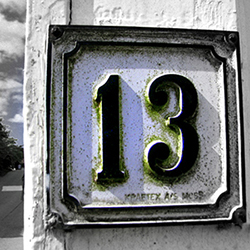
Businesses Cannot File for Chapter 13 Bankruptcy.
Corporations and Partnerships cannot file under Chapter 13 Bankruptcy. On the other hand, if you own a business as a sole proprietor, you can file for Chapter 13 bankruptcy as an individual and include the business-related debts for which you are personally liable.
You Must Have Stable and Regular Income.
You must have stable and regular income to be eligible for Chapter 13 bankruptcy. That does not mean you must earn the same amount every month, just that the income is steady. In other words, your income must be likely to continue and it must be periodic – weekly, monthly, quarterly, semi-annual, seasonal or even annual. Here is a list of some types of income you can use to fund a Chapter 13 plan:
- Regular wages or salary
- Income from self-employment
- Wages from seasonal work
- Commissions from sales or other work
- Pension payments
- Social Security benefits
- Disability or workers’ compensation benefits
- Unemployment benefits, strike benefits and the like
- Public benefits (welfare payments)
- Child support or alimony you receive
- Royalties and rents
- Proceeds from selling property, especially if selling property is your primary business
- Rent payments and money from roommates.
You Must Have Some Disposable Income.
For you to qualify for Chapter 13 bankruptcy, your income must be high enough so that after you pay for your basic human needs, you are likely to have money left over to make periodic (usually monthly) payments to the bankruptcy court for three to five years. How much money you would need to have “left over” in order to make a Chapter 13 plan work will depend on a lot of factors, including:
- The type of debts you owe
- The amount you owe regarding each type of debt
- The value in your property above what can be protected by available State and Federal exemptions
- The length of time your Court will allow you to run your plan
- The manner, amount and order in which your Court decides to pay out the various types of debts
- How your Court interprets what is known as the “good faith” test, and
- How your Court interprets a whole host of other independent, but intersecting, laws and rules.
Income available to fund a Chapter 13 plan is determined by the “means test.” The “means test” is a budgetary analysis that subtracts from your income monthly living expenses and payments on secured items, such as a home and/or vehicles. The “means test” is designed to calculate how much money you have left over at the end of the month after payment of your expenses that you could pay to your creditors.
Your Total Debts Must Not Be Too High.
You do not qualify for Chapter 13 bankruptcy if your secured debts exceed $922,975.00 (as of year 2007). A debt is secured if you stand to lose specific property if you don’t make your payments to the creditor. Home loans and car loans are the most common examples of secured debts. A debt might also be secured if a creditor – such as the IRS – has filed a lien (notice of claim) against your property. In addition, for you to be eligible for Chapter 13 bankruptcy, your unsecured debts cannot exceed $307,675.00 (as of year 2007). An unsecured debt is any debt for which you haven’t pledged collateral. The debt is not related to any particular property you possess, and failure to repay the debt will not entitle the creditor to repossess property. Most debts are unsecured, including bank credit card debts, medical and legal bills, student loans, back utility bills and department store charges.
